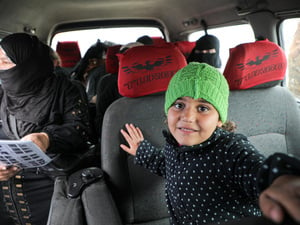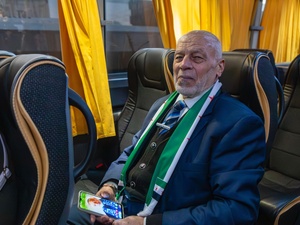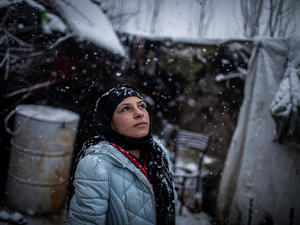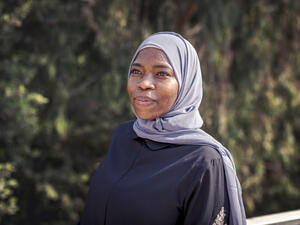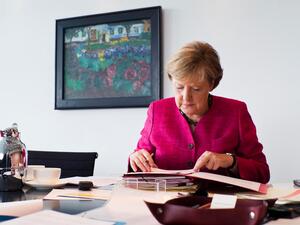Second shift schools offer hope to young Syrians
Second shift schools offer hope to young Syrians

Young Syrian students take part in a "second shift" class at the Vera Frangieh school, in Zgharta, north-east Lebanon.
ZGHARTA, Lebanon, February 24 (UNHCR) - "Maliki my love," sings Omar, a young Syrian boy. It's a popular song in Arabic, but the declaration of love to his favourite Lebanese teacher, Maliki, is a special addition.
Children from all over Syria have had their childhoods interrupted by the war in their homeland. For Omar, there's now a glimmer of hope. The refugee is thriving in a new school in Zgharta, north-Lebanon. The school building is a sanctuary for Omar and his peers - children's art adorns the walls, and the teachers exude kindness and enthusiasm for their pupils, despite doing double shifts to help cope with the extra demand.
With nearly 2.5 million registered refugees in the region, nearly half of whom are under 18 years of age, the pressure to provide education opportunities has been immense. In Lebanon, a third of the more than 930,000 Syrian refugees are of primary school age
While trying to accommodate the new arrivals, local schools reached saturation point and new students were unable to enrol. "I have seen classes in the first shift where there wasn't space for one more desk," said Bathoul Ahmed, a UNHCR public information officer.
A solution, for more than 27,000 Syrian children across Lebanon, has been found in the 74 Lebanese schools now running a second shift to allow more Syrian youngsters to continue with their education. The programme was piloted in the town of Arsal last year and launched across the country in November by the Ministry of Education with the support of UNHCR.
Its success has been down to the dedication of the Lebanese teachers, like Omar's favourite, Maliki, who ensure that the Syrian children receive the same level of education as their Lebanese peers. Students even receive Lebanese public school diplomas, ensuring their education is recognized.
Although he is seven, Omar had never attended primary school before enrolling here in Zgharta. In class, he sits with his older sister, Majed, who watches over him protectively -- two of his other siblings are in another class. Studying helps them think of other things than their hometown of Homs, which they fled more than a year ago.
The fact many Syrian children have been out of education for so long has led to the introduction of accelerated learning programmes for 15,000 students, to try and help them claw back some of the lost years and get their education back on track.
Schools running two shifts provide classes in Arabic, French, Maths, Science, Civil Society and Geography and take students between the ages of six and 14. After this, it's hoped that students will be fluent enough in French to enter the less crowded mainstream secondary education system in the country if they wish to continue their studies.
French language is popular with the children; it is Omar's favourite subject. He has picked up many words and phrases in the month he has been attending school, even reciting the names of shapes and numbers in front of the class.
With 270,000 school-aged children registered with UNHCR in Lebanon, there is still work to do. Last month, UNHCR, UNICEF, Save the Children and other partner organizations appealed for US$1 billion for the "No Lost Generation" campaign to fund the delivery of a strategy for education and protection for children affected by the Syrian conflict.
Throughout the 2013-14 school year, it is hoped another 10 schools will open, giving an additional 4,000 pupils across Lebanon the chance to resume their education. If it makes them as happy Omar, it is worth the US$650 per year that it costs to educate a child.
"I like school a lot," he says. Although he loves riding his bike, it cannot compare to classes: "I just wait until 2pm, until I can come to school. I do have some friends - Ali and Ahmed and Hussein - but I prefer the days when I have school."
Across the region, meanwhile, more than 550,000 Syrian children are enrolled in learning activities in the main host countries - Lebanon, Iraq, Jordan and Turkey. In Iraqi Kurdistan, the Ministry of Education runs second shifts in seven schools in the city of Erbil.
By Emma Beals in Zgharta, Lebanon.


